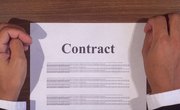
Leasing vehicles has become more attractive in recent years as car dealers have improved the terms of leases to increase sales. If you have a vehicle you can trade in, you can benefit even more. In some cases, you can even trade in a leased vehicle you currently have.
In addition to lowering or eliminating your down payment amount and/or monthly payments, when you lease a car with a trade-in, you might get a tax benefit as well. Reviewing the advantages of leasing a car with a trade-in instead of selling your current vehicle first will help you decide your best option.
What Is a Trade-In?
When you are buying or leasing a new vehicle, you can offer your current vehicle to the dealer as a trade-in for the lease or purchase in exchange for a reduction in the price of the new vehicle. The dealer will have your car inspected to determine its worth. The more the dealer can sell the car for, the more credit you’ll get.
You won’t get a dollar-for-dollar trade (remember that the dealer has to make a profit), but you will probably get most of the value of the car. The dealer is more interested in your new lease than the profit on your old car.
Trading in an owned or leased vehicle when signing a new lease requires two separate but usually seamless transactions: You must sell your current car to the dealer and then lease the new car from the dealer.
You Reduce Your Costs
When you trade in your current vehicle, the value the dealer places on your trade-in gets deducted from the purchase price and/or down payment of your car. This amount can often be more valuable than what you can get selling your car for cash and then using that cash to apply to your new vehicle purchase. This is because a dealer might offer you a slightly inflated price for your used car in order to get you to sign a new lease.
Also, a dealer connected with a service department can probably make repairs to your old car cheaper than someone who buys it off you from a Craigslist or Facebook post. In addition to lowering your down payment, you might also lower your monthly payments based on the value of your trade-in, points out RelayCars.
You Might Reduce Your Taxes
If you sell your car for cash, you might have to pay capital gains tax, reducing the overall net cash you put in your pocket. This is why it’s always a good idea to get a quote from your leasing company before you sell your car to see what the company will offer you.
On the other hand, if you haven’t made enough money to have an income tax liability this year, you might not have to pay those capital gains anyway, so the cash from a retail sale might be better than the credit a leasing company offers you. Different states have different tax laws when it comes to leasing a car that can also reduce or eliminate some taxes, so check with your state’s department of motor vehicles, recommends Consumer Reports.
How Does a Trade-In for a Lease Impact Your Credit Score?
The more debt you have, the lower your credit score will generally be. If you can get $4,000 knocked off the purchase or lease price of a car and/or lower your monthly payments, this means you’ll be carrying less debt and will have lower debt-to-income and debt-to-credit ratios. All of these factors can help keep your credit score higher than if you paid full price for the new car.
Get Your Car Ready
Before you offer your car as a trade-in, do what you can to make it look more attractive to a dealer. Have it inspected to see if it has any major or minor mechanical problems, recommends Cars.com. At the very least, have the interior cleaned and detailed, get new floor mats, remove torn or dirty seat covers and have the car washed and waxed.
References
Writer Bio
Steve Milano has written more than 1,000 pieces of personal finance and frugal living articles for dozens of websites, including Motley Fool, Zacks, Bankrate, Quickbooks, SmartyCents, Knew Money, Don't Waste Your Money and Credit Card Ideas, as well as his own websites.

